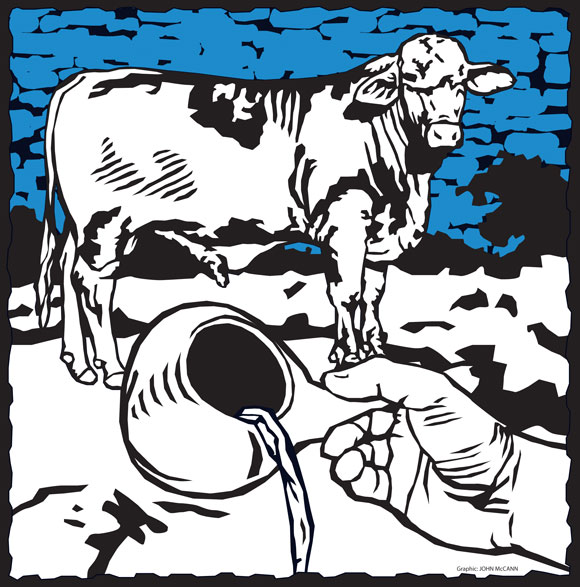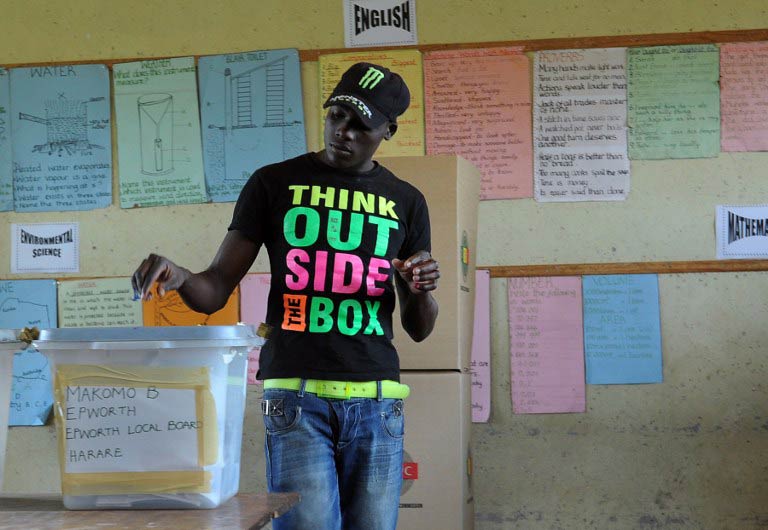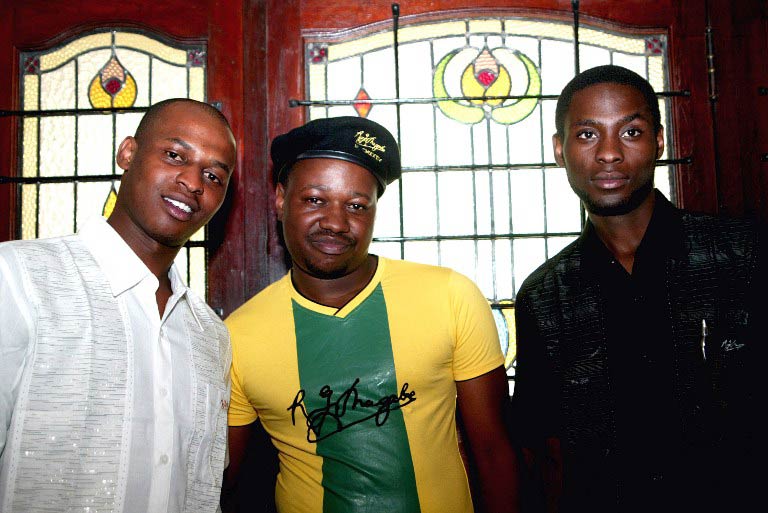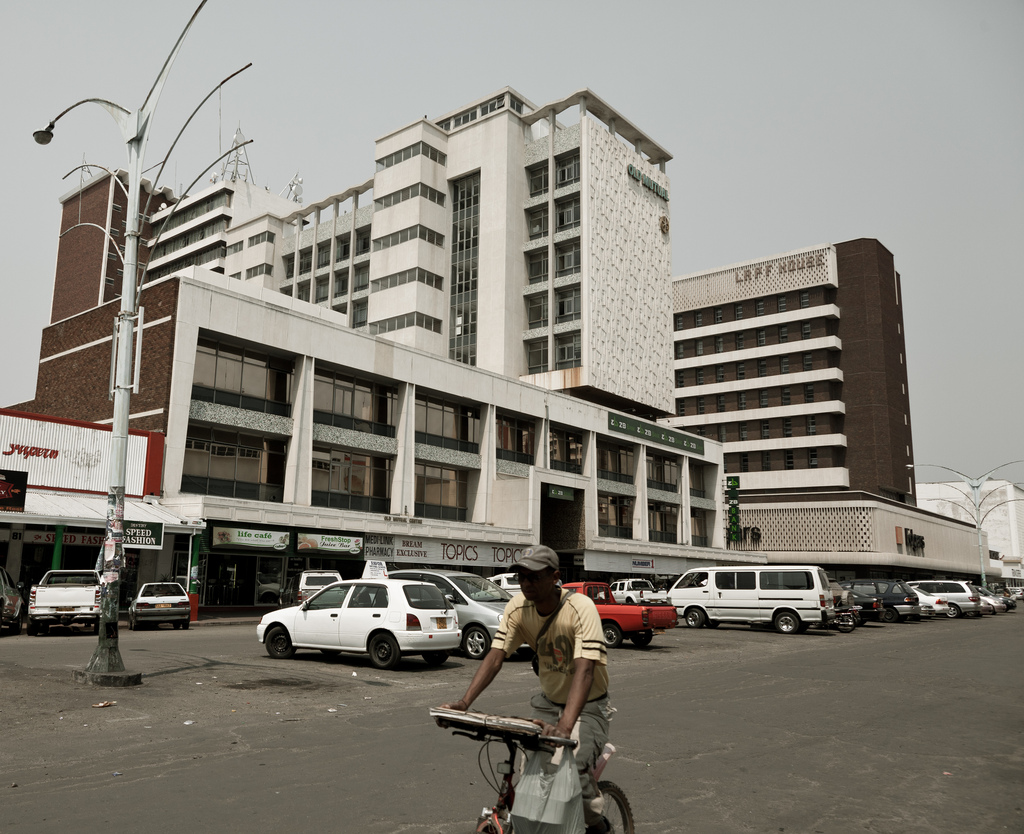The year is 1989, 12 months after my father’s death. We all gather at his farm – uncles, aunties, cousins, nephews, brothers and sisters from his seven wives, neighbours, too. This is a ceremony that no one should ever miss: it has taken all week for the stream of arriving relatives from our huge family to flood the homestead.
Late Friday, on an evening filled with subdued excitement, a bull is driven to the centre of the danga (the cattle pen), and ceremonially presented to us all. The following morning, it will be sprinkled with traditional beer brewed by a woman who is past menstruation, in readiness for slaughter.
Next morning we wake, the little ones included, at first cock’s crow. An elder, uncle to us all, accompanied by my father’s first wife, the VaHosi (Queen), carries a calabash of frothing traditional beer. We follow him to my father’s grave in total silence. The air is warm and dense with dignity.
At the graveside, Uncle kneels, places the gourd of beer besides the grave and inspects it to make sure there has been no tampering with the soil and leaves on the grave. He nods with satisfaction. Women ululate. Men cup hands. Uncle breathes with the relief of a heavy responsibility dispatched. A tense silence descends as if inaudible voices are falling, cloudlike, over our heads and into our expectant hearts.
Uncle speaks: “My brother, it is me, and as you can see, I am accompanied by all, all of them, your blood. We have come to take your spirit back into the homestead so that from today, your spirit will not roam in the forest. You have had time enough to miss your family, and those who went before you. From now on, your spirit is back with us. You are no longer dead, you are more useful for us as you join those gone before you.
“Now, when we pray, you are part of the stream through which we can reach the Great Creator, the sea of life, through those who went before you.”
Praying, Uncle pours some of the brew onto the grave before sharing the rest with us, following the hierarchy – men and women, boys and girls – all sip the brew from the same gourd.
It is then that the music and dancing begin, all day, all night, celebrating the return of the living-dead to the living as well as to the dead-living. They had not died. They have only been transformed into another phase of life, less vulnerable than the living flesh, eternal in the poetry of family and memory of the music-makers of the village.
The slaughtered bull is more than enough meat for all. Huge pots are ranged over fires as the women busy themselves with cooking. Food and drink, song and dance, the day fades into a night of revelry.

As my brothers and I drive back to the city after two days of endless festivities, we feel refreshed, blessed by those who are privileged to be the living-dead who interact with the dead as well as the living, those under whose shadow we feel safe. We seem to float through the north-westerly winds, and the 300 kilometre-journey back to Harare.
The fear of death and what the after-life holds are the basis of many earthly religions. Humans desire to be safe, even after death, to remove the terror that lurks in the unknown. So, religious ceremonies and rituals are created to map out the comforts that one deserves in old age, and even in death.
Not so with many African religions, especially in southern Africa, and at one’s old age. The desire to die can become as compulsive as an overdue pregnancy. It is the desire to become an ancestor that also washes away the fear of death and ageing.
“Death has forgotten me,” says my 98-year old uncle, MM, as we call him. After my 8-year absence from Zimbabwe, I dared call him to find out about his state of health. He longs for death, as if for a lover. “I want to join my friends in the world of the ancestors. Death,” laughs the old man, “has a short memory.”
When MM was in his late 70s, I teased him about going to an old people’s home, the European way. He smiled and exclaimed: “Do I look like an old rag to be discarded?”
Then we talked about the meaning of life: birth, youth, adulthood, ageing, death and life after death.
He would tell me how every aspect of life is celebrated with blood, not as a sign of death, but a sign of rebirth, regeneration, another life in dialogue with the earth which is the source of all life.
At birth, the baby bursts into the world with a yell, but then there is blood from the mother to welcome the young life to this turbulent world. The umbilical cord is ceremoniously buried into the soil of a nearby anthill by the midwife, reminding the new born that he/she is part of this earth and one day will join the ancestors, in the earth, in the whispering winds, in the silent voices of those yearning for company, who have already been transformed to another life.
Death is a change, not an end. The cycle of life traverses the landscapes of birth, youth, old age, death, and the holy ancestors who are the living-dead, the ancestors who give more life to the living.
‘Tread carefully/ my brother,/Tread carefully,/ my sister,
This piece of earth/Is the nest/Where your ancestors lie’
I would create these poetic lines 30 years later, in memory of the journey to my father’s grave, the heavy, 50-metre walk we made to invite his roaming spirit back into the realms of The Creator, of the Ancestors, and the family.
Every living being knows their ultimate destination, the only mystery is the manner of the journey to the life-after. An elder’s profound wish is to die a dignified death, to be given a dignified burial, and a grand ceremony to welcome them back to protect the living and those still to be born.
As a person gets older, they are revered as counselor/advisor to the living, until death brings them to the world of the ancestors, closer to God.
The most haunting fear of a Shona person is not death, but infertility, the incapacity to leave offspring who will write the history of the dead in human blood and body. Life’s continuity, the unending stream of personal and collective history, must never be broken.
Singing and dancing through the night of my father’s umbuyiso ceremony all those years ago, we could already see him returning to us, rising with the morning sun, to celebrate the eternal journey. We had laid him to rest, his head to the east, and his feet to the west, and he was living again. New babies can now be named after him, and the rituals and crises of family will from now on all start with pleas for his intervention.
On the long journey home we were nourished by these thoughts: a new ancestor guards us as my father joins the stream of his own fathers and mothers to make our lives flow gently, without turbulence. And should misfortunes torment the family without apparent cause, we now have the language with which to demand that he performs his duties in the manner of a wise ancestor, one who can interact with both the living and the dead.
As the rains and good harvests come, and healthy children are born, more rituals will be performed to acknowledge the power and influence of the living-dead.
Poet, novelist and essay writer, Chenjerai Hove is one of Zimbabwe’s most celebrated literary figures.
This post was first published in the Mail & Guardian’s annual God edition.



